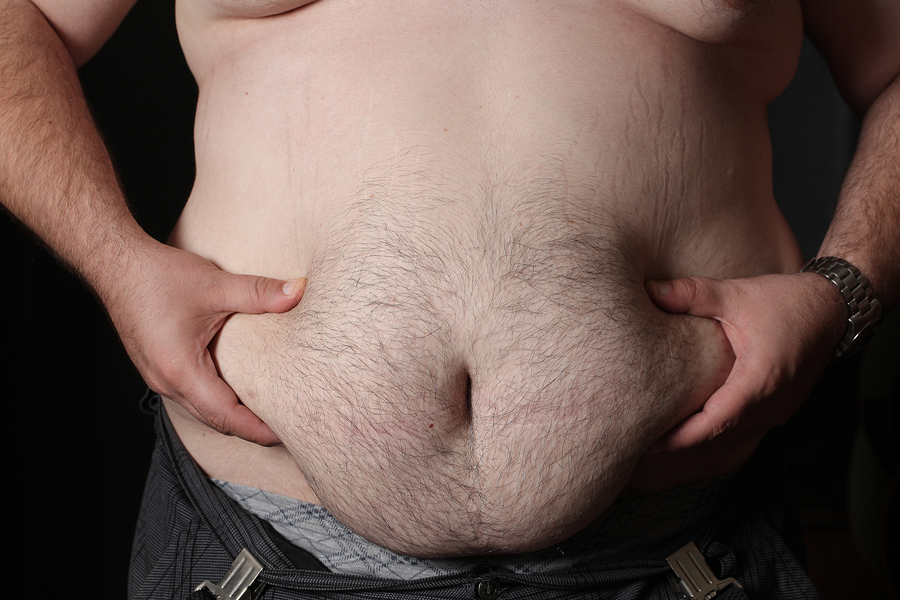People overeat and get fat for many reasons.
One of the main ones is eating too many calories.
That being said, certain foods are definitely more problematic than others.
Processed foods high in added fat, added sugar and salt are especially hard to put down.
Here’s a list of 10 foods that are highly fattening.
1. Soda
Sugary soda may just be the most fattening thing you can put into your body.
Sugar-sweetened drinks don’t contain any essential nutrients and add large amounts of “empty” calories to your diet.
Studies have shown that people who drink sugary soda are much more likely to gain weight than people who don’t.
One study found that people who drank soda on top of their normal diet consumed 17% more calories than they did before. Over time, this could easily lead to significant weight gain.
As well as increasing your risk of obesity, drinking soda has been associated with an increased risk of type 2 diabetes, heart disease and cancer.
Bottom Line: Sugary soda adds no essential nutrients to your diet, just empty calories. People who drink soda are much more likely to gain weight.
2. Sugar-Sweetened Coffees
Coffee can be a very healthy beverage.
However, coffees sweetened with added sugar or syrup can contain as much sugar as a can of coke.
Like soda, regularly consuming these sugar-sweetened beverages could have disastrous effects on your waistline and your health.
Bottom Line: Coffee drinks sweetened with syrups or sugars are very high in calories. Regularly drinking them could contribute to weight gain.
3. Ice Cream
Most commercially made ice cream is full of sugar. And since it’s often eaten as a dessert, ice cream can add a lot of extra calories to your meal.
If you enjoy ice cream, it’s probably best to have it as an occasional treat.
To choose a healthier ice cream, look for one with less than 15 grams of sugar per serving. Also, make sure to watch your portion sizes.
Bottom Line: Most commercially made ice creams are high in sugar and can add a lot of extra calories to your meal.
4. Takeaway Pizza

Commercially prepared pizzas are one of the most popular junk foods, especially among young people and kids.
Pizzas are usually very tasty, but they contain high amounts of fat, refined carbs and calories.
Some of the most popular varieties are also made with large amounts of cheese and processed meat.
Processed meats are meats that have been cured, salted or smoked.
A high intake of these meats has been linked to obesity and an increased risk of adverse health conditions like heart disease and some cancers.
However, not all pizza is created equal.
If you love pizza and want to include it in your life, try to find a pizzeria that uses healthy ingredients, such as vegetables and whole grain dough. You can also make your own pizza at home.
Bottom Line: Commercially prepared pizza can be loaded with calories and processed meats. Try choosing pizza made with healthier ingredients, or make your own at home.
5. Cookies and Doughnuts

Cookies and doughnuts contain high amounts of sugar, refined flour and added fats.
They can be extremely high in calories. To keep your weight in check, you should limit your intake.
If you do get a cookie craving, go for a small, single serving and not a giant cookie or a whole pack of cookies.
This can help you enjoy a treat and limit the amount of excess calories and sugar you consume.
Also, an average medium-sized doughnut may contain over 200 calories. Some glazed doughnuts contain more than 300 calories.
For optimal health and weight, doughnuts should be avoided as much as possible.
Bottom Line: Cookies and doughnuts are high-calorie, high-sugar foods. If you choose to eat them, keep your portions small.
6. French Fries and Potato Chips

French fries are a popular choice of snack or side, particularly when eating out.
However, the average serving of french fries (5 oz or 139 g) will typically contain about 427 calories, making them a high-calorie side dish or snack.
Most commercial french fries also have a high fat and salt content, making them very easy to overeat.
French fries also often accompany other junk foods, and are commonly eaten with high-sugar sauces like ketchup.
This can contribute to a high calorie intake in one sitting, which can lead to weight gain. In fact, several studies have linked eating french fries to weight gain.
Like french fries, potato chips are very high in fat, refined carbs and salt.
They have also been linked to weight gain in observational studies. One study even found them to be the food most likely to cause weight gain.
Boiling or baking potatoes is much healthier.
Bottom Line: French fries and potato chips are very high in added fats, refined carbs and salt. Studies have linked them both to weight gain.
7. Peanut Butter

Moderate amounts of peanut butter can be healthy.
This is particularly true if they’re made with wholesome ingredients like roasted and ground peanuts and a little salt.
In fact, eating nuts and peanuts has been linked to reduced weight and better health.
However, commercially prepared peanut butter often contains added sugar, hydrogenated vegetable oils and loads of salt. This type of peanut butter is definitely not as healthy.
Peanut butter is also extremely high in calories, and very easy for some people to overeat.
If you can limit your intake, then including peanut butter in your diet shouldn’t be a problem. However, if you struggle to control your portions, then you’re probably better off avoiding peanut butter.
Bottom Line: Most commercially made peanut butter contains added sugars and fats. It can easily make you gain weight if eaten in excess.
8. Milk Chocolate

Dark chocolate has been linked to numerous health benefits, including improved heart health and brain function.
However, most commercially produced milk and white chocolate has a ton of added sugar.
These types of chocolate are high in both fat and added sugar. Like other junk foods, they’re super easy to overeat.
Bottom Line: Unlike dark chocolate, milk and white chocolate contain lots of added sugar. Chocolate is highly palatable and very easy to overeat.
9. Fruit Juice
Fruit juice is often seen as a healthy choice.
However, most commercial brands contain just as much sugar as sugary soda. They also lack the fiber and other nutrients found in whole fruits.
Drinking excessive amounts of fruit juice has been linked to an increased risk of obesity, especially in children.
Whole fruit is a much healthier and more weight loss friendly choice than fruit juice.
If you want to include fruit juice in your diet, choose unsweetened, 100% fruit juice and keep your portion size to a maximum of 5 oz (150 ml) per day.
Bottom Line: Fruit juice contains high amounts of sugar. Drinking excessive amounts has been linked to an increased risk of obesity.
10. Other Commercially Processed Foods

It’s been suggested that increased convenience food consumption could be partially to blame for the obesity epidemic.
Manufactured processed foods can look and taste like “real food,” but in many case they bear little nutritional resemblance to homemade foods.
Not all processed foods are bad, but many have been manufactured to look and taste like minimally processed foods, so it’s important to read the food label.
Some types of processed foods have been linked to higher calorie intakes and poorer diet quality.
Reducing your intake of processed foods could help you avoid unnecessary calories and improve the quality of your diet.
Bottom Line: Reducing processed foods high in added fat, added sugar and salt can improve the quality of your diet and help prevent weight gain.
Take Home Message
People gain weight because they eat more calories than they burn.
It should be noted that no single food on this list will make you fat if enjoyed occasionally, as part of a balanced diet.
However, regular and excessive consumption of these foods will likely make you gain weight over time.
*Article originally appeared at Authority Nutrition.












